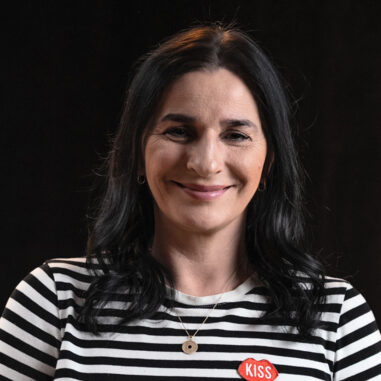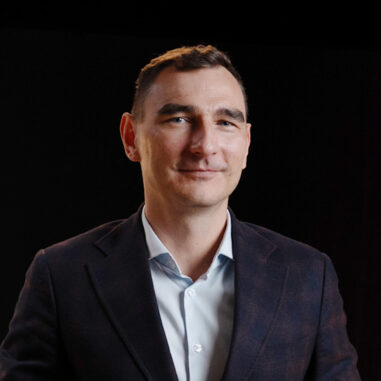
Gum disease destroys the body - check if you have symptoms. Episode 112
99% of Poles have gum problems - but most of us don't know it. Bleeding when brushing, swelling, receding gums or moving teeth are all symptoms we underestimate.
Gum disease: the silent enemy that is damaging your health
Do you see blood when brushing your teeth? Think it's nothing? Wrong move. That's exactly how the story begins, the finale of which may not only be the loss of teeth, but also a heart attack, diabetes or memory problems. In the latest episode of the "First Patient" podcast, Monika Rachtan talks to Natalia Stefanik, M.D., a stomist. Natalia Stefanik - about gum disease, which affects almost everyone in Poland, but we still treat it as a cosmetic defect.
It's not the toothpaste that bleeds - it's you
Bleeding gums are not 'the result of too hard a toothbrush'. It is an alarm signal that chronic inflammation is going on in the mouth. Gingivitis, periodontitis - these terms sound familiar, but do we really understand them? Natalia Stefanik explains: healthy gums do NOT bleed. If this is the norm with you - don't ignore it. It's like having a finger bleed every day and saying "cool, it'll pass".
Teeth moving? It's not age. It's neglect
Periodontitis is like a hacker - it works silently. You may not feel any pain for years, and in that time the bacteria are doing their thing: destroying gums, bone, and teeth losing stability. And suddenly you notice that one of them is moving. You look for a paste "for periodontitis". Too late. Now you have to fight to save it. Surgical treatment, subgingival cleaning, bone regeneration - these are not aesthetic treatments. They are often a fight for the functionality of the entire mouth.
Your gums, your heart, your memory
Did you know that inflammation in the mouth can worsen the course of diabetes? That it can be linked to heart attacks, strokes and even the development of Alzheimer's disease? These are not theories - they are medical facts. Oral bacteria do not stop at the gum line. They travel through the bloodstream to the brain, heart and kidneys. This is why Natalia Stefanik makes it clear: periodontal treatment is not a fad. It is part of the prevention of the whole body.
Hygienization is not whitening. It is a rescue
People ask: "Do I really need to go to the hygienist every six months? Yes, if you want to preserve your teeth. Hygienization removes deposits, bacteria, deposits that you can't see but that work against you every day. A toothbrush - even the best one - doesn't reach everywhere. Flossing, an irrigator, dental check-ups - these are not fads from Instagram, but the foundation of oral health.
Pain-free treatment - yes, it is possible
Fear of the dentist is a common reason why we delay treatment. But modern periodontics has a completely different face. Treatment can be gentle, painless and effective. Natalia Stefanik explains that today we can not only stop the disease, but also improve the patient's overall wellbeing. She often hears from patients: "I sleep better", "I have more energy", "My sugar has normalised". The change starts with the gums.
No symptoms? More.
It's a trap. Most people with periodontal disease do not feel pain. That is why education and prevention are so important. The earlier we detect the problem, the lower the risk of serious consequences. The Patient First podcast was created to talk about such topics - without taboos, without stitching, straightforwardly.
Take care of your gums. Take care of yourself.
The episode with Natalia Stefanik is not just a conversation about teeth. It's a conversation about quality of life, about how small neglect leads to big problems. And about the fact that we really can stop it.
Previous episodes

Can a doctor be an influencer? Ola Marianowska answers. Episode 111
Just a decade or so ago, a doctor's presence on social media aroused surprise and sometimes even opposition. Today, it is becoming not only the norm, but actually a necessity.

Parents sound the alarm: polluted air, unhealthy food, lack of exercise. Episode 110
Imagine that every time you go to school with your child starts by walking through a curtain of fumes. That lunch in the school canteen is more a test of sugar and salt tolerance than a lesson in healthy eating. That 'fresh air' has become a term from science books rather than an everyday experience.

8 million smokers in Poland. Who will finally help us quit? Episode 109
A cigarette doesn't scream. It doesn't stagger like alcohol. It doesn't wreak havoc in sudden bursts of aggression. And yet - it is the one that quietly kills over 70,000 Poles a year. Nicotine, although legal and packaged in fashionable sachets or stylish e-cigarettes, is one of the most potent drugs known to science. And although we have known for decades how deadly it can be, Poland is still unable to combat it effectively.

Not all sex ends in orgasm - and very well. Episode 108
Did you know that thousands of women in Poland have no idea for years that... they are still virgins? And others give up sex not because they don't want to, but because every attempt ends in pain, anxiety, disappointment. In the latest episode of the podcast Po pierwsze Pacjent, Monika Rachtan talks to Professor Krzysztof Nowosielski - gynaecologist, sexologist and oncologist.

Urophysiotherapy, or how to regain a comfortable life after prostate removal. Episode 107
Can a procedure that saves lives also take away a sense of masculinity? In the latest episode of Patient First, Monika Rachtan talks to urophysiotherapist Kamila Grabek about complications after prostatectomy.




